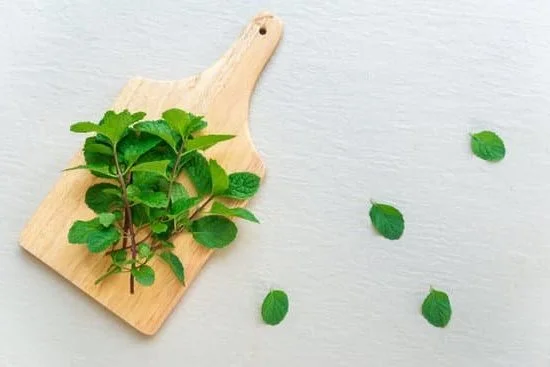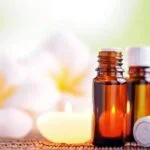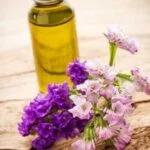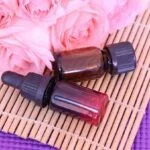Anxiety is a common and often debilitating condition that affects millions of people worldwide. The search for relief from anxiety symptoms has led many individuals to explore various treatment options, including alternative therapies like aromatherapy. Aromatherapy, a practice that utilizes the natural scents of essential oils, has gained popularity in recent years as a potential remedy for anxiety. This article aims to delve into the topic of whether or not aromatherapy can effectively help manage anxiety.
Anxiety is characterized by feelings of fear, unease, and worry that can significantly impact one’s daily life and overall well-being. While there are conventional treatments available, such as therapy and medication, many individuals are turning to alternative approaches for relief. Aromatherapy stands out as an intriguing option due to its non-invasive nature and the potential benefits derived from inhaling or topically applying essential oils.
In this article, we will explore the basics of aromatherapy and how it works on anxiety. We will also delve into the scientific evidence supporting the effectiveness of aromatherapy as a complementary treatment for anxiety. Additionally, we will provide comprehensive information on popular essential oils for anxiety and discuss different techniques for incorporating aromatherapy into an anxiety management routine.
Through case studies and real-life experiences, we will offer insight into the effectiveness of aromatherapy in managing anxiety symptoms. However, it is crucial to consider both the potential benefits and limitations of aromatherapy in addressing anxiety. Finally, we will provide practical tips on safely incorporating aromatherapy into your daily routine and highlight any necessary safety precautions or potential side effects.
The search for effective methods to alleviate anxiety is ongoing, with individuals seeking relief from their symptoms in various ways. Aromatherapy offers a potentially appealing avenue for those looking for alternative options to manage their anxiety levels. By examining the science behind aromatherapy and exploring real-life experiences with this practice, this article will provide valuable insights into the potential benefits and limitations of aromatherapy in anxiety management.
What is Aromatherapy
Aromatherapy is a holistic healing practice that uses essential oils derived from plants to promote physical, emotional, and mental well-being. The term “aromatherapy” was coined by French chemist René-Maurice Gattefossé in the early 20th century, but the use of aromatic plant extracts dates back thousands of years across various civilizations.
At its core, aromatherapy involves harnessing the power of fragrance for therapeutic purposes. Essential oils are highly concentrated volatile liquids extracted from plant materials such as flowers, leaves, bark, or roots. These oils contain the natural essence of the plant and possess aromatic compounds that stimulate our olfactory system.
There are several ways to use essential oils for aromatherapy. Inhalation is one of the most common methods and involves breathing in the aroma directly. This can be achieved by adding a few drops of an essential oil to a diffuser or inhaling it directly from the bottle.
Another popular technique is topical application, where diluted essential oils are applied to the skin through massage or added to bathwater. Some individuals also choose to use aromatherapy through diffusion, which involves dispersing essential oil particles into the air using nebulizers or humidifiers.
When inhaled or applied topically, these aromatic compounds can affect brain function and trigger various physiological responses within our bodies. The scent molecules stimulate our olfactory receptors which send signals to our limbic system-a part of the brain responsible for emotions and memory formation. This interaction can result in mood enhancement, stress reduction, improved relaxation, and anxiety relief.
While there is still ongoing research on how exactly aromatherapy works on anxiety at a physiological level, anecdotal evidence along with some scientific studies suggest that certain essential oils have potential anxiolytic effects-meaning they may help alleviate symptoms of anxiety. Further exploration in this field could potentially lead to more conclusive evidence on how specific essential oils interact with the brain and nervous system to promote relaxation and reduce anxiety.
The Science Behind Aromatherapy
Aromatherapy is a popular complementary therapy that has gained attention for its potential to alleviate anxiety. The use of aromatic plant oils for therapeutic purposes dates back thousands of years, and many people believe in the power of scent to promote relaxation and reduce stress. In this section, we will explore the science behind aromatherapy and how it works on anxiety.
Chemical Composition and Effects
One of the primary ways aromatherapy works on anxiety is through the inhalation of essential oils. Essential oils are highly concentrated plant extracts that capture the natural scents and chemical compounds of plants. These compounds, such as terpenes and esters, have been found to have various physiological effects on the body and mind.
When inhaled, these aromatic molecules travel through the olfactory system in the nose and stimulate the limbic system, which is responsible for emotional processing. Studies have shown that certain essential oils can directly influence neurotransmitters like serotonin, dopamine, and gamma-aminobutyric acid (GABA), which play key roles in mood regulation.
The Placebo Effect
It’s important to note that the effectiveness of aromatherapy for anxiety may not solely be attributed to its chemical properties but also to a placebo effect. The belief in a treatment’s efficacy can influence one’s subjective experience of their symptoms. Many studies on aromatherapy have involved participants who already had faith in its benefits or were seeking alternative therapies, which could impact their perception of anxiety relief.
However, even if some responses are placebo-related, there is still value in using aromatherapy if it brings about a sense of calm and relaxation. The mind-body connection should not be overlooked when considering any holistic approach to managing anxiety.
The Importance of Individual Variation
It’s crucial to recognize that each person may respond differently to aromatherapy due to factors such as personal preferences, previous experiences, and the unique composition of their body chemistry. What works for one individual may not have the same effect on another.
Moreover, there is limited scientific research specifically focused on how aromatherapy affects anxiety. Much of the evidence comes from anecdotal reports, case studies, and small-scale trials. While these can provide valuable insights into personal experiences with aromatherapy, more rigorous research is needed to establish its effectiveness as a standalone treatment for anxiety.
In the next section, we will explore popular essential oils that are commonly used in aromatherapy for anxiety relief.
Popular Essential Oils for Anxiety
Aromatherapy is a natural approach to anxiety relief that involves the use of essential oils derived from plants. These oils are highly concentrated and contain aromatic compounds that have been found to have various therapeutic properties. When it comes to managing anxiety, certain essential oils have gained popularity for their calming and relaxing effects. Here is a comprehensive guide to some of the most commonly used essential oils for anxiety:
- Lavender Oil: Lavender oil is perhaps one of the most well-known and widely used essential oils for anxiety relief. It has a soothing scent that can help promote relaxation and reduce feelings of stress and tension.
- Chamomile Oil: Chamomile oil is another popular choice for alleviating anxiety symptoms. Known for its calming properties, this oil can help ease restlessness, irritability, and nervousness.
- Bergamot Oil: Bergamot oil is derived from the rind of citrus fruits and has a refreshing and uplifting aroma. It is often used in aromatherapy to promote relaxation, reduce stress, and improve mood.
- Ylang Ylang Oil: Ylang ylang oil has a sweet floral scent that is known for its sedative effects. This oil can help calm the mind, alleviate feelings of anxiety, and promote better sleep.
- Frankincense Oil: Frankincense oil has been used for centuries for its grounding and centering properties. It can help reduce anxiety symptoms by promoting deep relaxation and tranquility.
When using essential oils for anxiety relief, it’s important to note that individual responses may vary. It’s recommended to start with a small amount of oil to test your sensitivity before using it more extensively.
To incorporate these essential oils into your anxiety management routine, there are several methods you can try:
- Inhalation: Add a few drops of your chosen essential oil onto a tissue or handkerchief and slowly inhale the aroma. Alternatively, you can use a diffuser to disperse the oil into the air.
- Topical Application: Dilute the essential oil in a carrier oil, such as coconut or jojoba oil, and apply it to your skin. The wrists, temples, and back of the neck are common areas for application.
- Bathing: Add a few drops of essential oil to warm bathwater and soak for at least 15 minutes. This method can provide overall relaxation and help relieve anxiety symptoms.
Overall, essential oils can be a valuable tool in managing anxiety symptoms. However, it’s important to remember that aromatherapy should be used as a complementary therapy alongside other forms of treatment. If you have severe or chronic anxiety, it’s recommended to consult with a healthcare professional before incorporating aromatherapy into your routine.
Aromatherapy Techniques for Anxiety Relief
Aromatherapy offers various techniques that can be used to relieve anxiety. These techniques primarily involve inhalation, topical application, and diffusion of essential oils. Each method has its own benefits and can be easily incorporated into daily routines.
Inhalation is one of the most common and effective ways to use aromatherapy for anxiety relief. Direct inhalation involves placing a few drops of essential oil onto a tissue or handkerchief and inhaling deeply. This method allows the aroma to quickly reach the olfactory system and stimulate the brain’s limbic system, which is responsible for emotions and memory.
Another inhalation technique is to use a personal inhaler or diffuser. Personal inhalers are small devices that contain a cotton wick soaked in essential oils. They can be carried discreetly in pockets or bags and provide quick access to anxiety-relieving scents throughout the day. Diffusers, on the other hand, disperse essential oil molecules into the air in larger spaces like homes or offices. They can create a relaxing environment with consistent aromatherapy benefits.
Topical application involves directly applying diluted essential oil blends onto the skin. Popular areas for application include pulse points such as wrists, temples, behind the ears, and over the heart. The oils are absorbed through the skin and enter the bloodstream to provide systemic relief from anxiety symptoms. It is important to properly dilute essential oils with carrier oils before topical application to avoid irritation or sensitivity reactions.
Aromatherapy Techniques for Anxiety Relief: Inhalation, Topical Application, and Diffusion
Aromatherapy techniques for anxiety relief typically involve inhaling essential oils directly or using diffusers for larger spaces. Inhalation allows for quick absorption of aromatic compounds through the olfactory system into the brain’s limbic system, which is responsible for emotions. Using personal inhalers or diffusers can provide convenient and consistent access to anxiety-relieving scents throughout the day.
Topical application is another effective technique for using aromatherapy to manage anxiety. By applying diluted essential oil blends onto the skin, the oils are absorbed into the bloodstream and provide systemic relief. Pulse points such as wrists, temples, behind the ears, and over the heart are popular areas for topical application. It is important to properly dilute essential oils with carrier oils to prevent skin irritation or sensitivity reactions.
| Aromatherapy Technique | Description |
|---|---|
| Inhalation | This technique involves inhaling essential oils directly or using diffusers to disperse aromatic compounds into the air. It provides quick absorption of soothing scents through the olfactory system for immediate anxiety relief. |
| Topical Application | Essential oil blends are applied directly onto the skin, allowing for systemic absorption and long-lasting effects. Popular areas for application include pulse points like wrists and temples. |
Case Studies
In this section, we will delve into real-life case studies that showcase the experiences of individuals who have used aromatherapy as a tool for managing their anxiety. These stories aim to provide insights into how aromatherapy can be beneficial in various anxiety-related situations and offer hope to those considering this therapy.
One case study involves Sarah, a 32-year-old woman who had been experiencing chronic anxiety for several years. She decided to explore alternative therapies and came across aromatherapy. After researching different essential oils known for their calming properties, Sarah started using lavender oil through inhalation and topical application.
Over time, she noticed a significant reduction in her anxiety symptoms, such as racing thoughts and restlessness. Sarah found the calming scent of lavender soothing, which helped her relax during stressful situations.
Another case study highlights the experience of Michael, a 45-year-old man who had been dealing with generalized anxiety disorder (GAD) for many years. Seeking relief from his symptoms, Michael turned to aromatherapy and began using bergamot oil through diffusion in his home and office environment.
He found that the citrusy aroma of bergamot helped alleviate his anxiety by promoting a sense of relaxation and tranquility. Additionally, Michael discovered that inhaling bergamot oil during meditation sessions enhanced his mindfulness practice and provided him with a greater sense of calmness.
These case studies demonstrate that aromatherapy can be an effective complementary approach for managing anxiety. However, it is important to note that individual experiences may vary, as everyone responds differently to different scents and techniques. It is recommended that individuals consult with a qualified aromatherapist or healthcare professional before incorporating aromatherapy into their anxiety management routine.
| Essential Oil | Primary Benefits | Recommended Methods of Application |
|---|---|---|
| Lavender | Calming, promotes relaxation | Inhalation, topical application |
| Bergamot | Up-lifting, stress reduction | Diffusion, inhalation during meditation |
These case studies and the accompanying table demonstrate the potential benefits of aromatherapy in managing anxiety. However, further research is needed to fully understand the mechanisms by which essential oils impact anxiety. With that said, let’s explore the pros and cons of aromatherapy for anxiety relief in the next section.
The Potential Benefits and Limitations of Aromatherapy for Anxiety
Aromatherapy has gained popularity as a natural and holistic approach to managing various health conditions, including anxiety. However, it is essential to understand both the potential benefits and limitations of aromatherapy in anxiety relief.
Potential Benefits of Aromatherapy for Anxiety
Aromatherapy can potentially offer several benefits in managing anxiety. Firstly, certain essential oils have been found to have calming properties that can help reduce feelings of stress and anxiety. Lavender oil, for example, has been extensively studied and is widely recognized for its anxiolytic effects. Research has shown that inhaling lavender oil can decrease heart rate and blood pressure, induce relaxation, and promote sleep quality.
In addition to promoting relaxation, aromatherapy can also help improve mood and enhance emotional well-being. Many essential oils used in aromatherapy have uplifting properties that can help alleviate symptoms of anxiety such as irritability, restlessness, and low mood. Citrus oils like bergamot or sweet orange are commonly used for their mood-enhancing effects.
Another potential benefit of aromatherapy for anxiety is the association between scent and memory. Certain smells are known to evoke positive emotions or trigger memories associated with relaxation or happiness. By using specific essential oils consistently during moments of calm or relaxation, individuals may be able to create a sense of familiarity or comfort that helps reduce anxiety when the scent is reintroduced later on.
Limitations of Aromatherapy for Anxiety
While aromatherapy shows promise in anxiety relief, it’s important to note its limitations as well. Firstly, individual responses to aromatherapy may vary significantly. What works for one person may not have the same effect on another due to differences in personal sensitivity or preference for certain scents.
Furthermore, while there is scientific evidence supporting the anxiolytic effects of certain essential oils, research on aromatherapy as a whole is still limited. The studies conducted so far have primarily focused on specific essential oils and their effects on anxiety symptoms, rather than exploring the comprehensive benefits of aromatherapy as a holistic approach. Therefore, more research is needed to better understand the mechanisms of action and optimize the use of aromatherapy for anxiety management.
Lastly, aromatherapy should not be considered a standalone treatment for severe or clinically diagnosed anxiety disorders. While it can be a valuable complementary therapy, individuals with severe anxiety may benefit from seeking professional help and using aromatherapy in conjunction with other evidence-based treatments such as psychotherapy or medication.
Practical Tips to Incorporate Aromatherapy into your Anxiety Management Routine
If you’re interested in trying aromatherapy as a natural method to manage your anxiety, there are several practical tips you can follow to incorporate it into your daily routine. Here are some suggestions to help you make the most of aromatherapy for anxiety relief:
- Choose the right essential oils: When it comes to anxiety management, not all essential oils are created equal. Some oils have calming properties that can help alleviate stress and anxiety, while others may have more uplifting or energizing effects. Lavender, chamomile, bergamot, and ylang-ylang are often recommended for their relaxation benefits. Experiment with different oils to find the ones that work best for you.
- Create a soothing environment: To fully experience the benefits of aromatherapy for anxiety relief, create a relaxing space in your home where you can practice it undisturbed. This could be a bedroom, living room corner, or even a designated area in your bathroom. Consider using dim lighting, playing soft music, or adding calming elements such as plants or candles to enhance the ambiance.
- Incorporate aromatherapy into your self-care routine: Aromatherapy can be incorporated into various aspects of your daily self-care routine. For example, you can add a few drops of essential oil to your bathwater for a calming soak or dilute essential oils in carrier oil for a relaxing massage before bed. Additionally, using an essential oil diffuser in your workspace or during meditation sessions can help create a calm and focused atmosphere.
Remember that everyone’s experience with aromatherapy is unique, so it may take some trial and error to find what works best for you. It’s also important to consult with a healthcare professional if you have any existing health conditions or if you’re currently taking medications that could interact with essential oils.
By incorporating these practical tips into your anxiety management routine, you can begin to explore the potential benefits of aromatherapy and find a natural approach that complements your overall well-being.
Safety Precautions and Potential Side Effects of Aromatherapy for Anxiety
While aromatherapy can be a beneficial tool in managing anxiety, it is important to exercise caution and be aware of safety precautions and potential side effects. Like any form of therapy, it is crucial to use essential oils properly and understand any risks involved.
Firstly, it is essential to remember that not all essential oils are safe for everyone. Some individuals may have allergies or sensitivities to certain oils, which can result in adverse reactions such as skin irritation or respiratory issues.
To ensure safety, it is recommended to perform a patch test before using an essential oil topically. Apply a small amount of diluted oil onto the inner forearm and observe the area for at least 24 hours for any redness, itching, or inflammation.
Additionally, pregnant women should exercise caution when using aromatherapy. Certain essential oils are known to stimulate uterine contractions and can potentially harm the fetus. It is advised to consult with a healthcare professional before incorporating aromatherapy into their routine during pregnancy.
Another potential side effect of aromatherapy is photosensitivity. Some citrus essential oils, such as bergamot or lemon, can increase the skin’s sensitivity to sunlight and lead to sunburns or discoloration. It is advisable to avoid prolonged sun exposure after applying these oils topically.
Lastly, it is important to use essential oils in moderate amounts and not exceed recommended dosages. Overusing certain oils can result in headaches, dizziness, nausea, or other uncomfortable symptoms. It is always best to start with small quantities and gradually increase if needed while monitoring oneself for any adverse effects.
Conclusion
In conclusion, aromatherapy has shown promising potential in helping to relieve anxiety. Through the inhalation, topical application, and diffusion of essential oils, individuals suffering from anxiety can experience a sense of calm and relaxation. The science behind aromatherapy suggests that certain essential oils can positively impact brain chemistry and hormonal balance, resulting in reduced feelings of anxiety.
While aromatherapy can be a valuable tool in managing anxiety, it is important to note that it may not be a standalone solution for everyone. Each individual’s experience with aromatherapy may vary, and it is important to approach it as part of a comprehensive anxiety management routine. It is recommended to seek guidance from a qualified healthcare professional or certified aromatherapist to ensure the safe and effective use of essential oils for anxiety relief.
When incorporating aromatherapy into your anxiety management routine, consider practical tips such as choosing the right essential oils for your specific needs and preferences, using appropriate techniques for inhalation or topical application, and creating a relaxing environment through diffusion. Remember to always prioritize your safety by adhering to safety precautions such as performing patch tests before applying essential oils topically and using proper dilution ratios.
Frequently Asked Questions
What essential oil is best for anxiety?
When it comes to finding the best essential oil for anxiety, there are several options to consider. One popular choice is lavender essential oil, which has been widely recognized for its calming properties. Lavender can help promote relaxation and reduce feelings of stress and anxiety. Another essential oil that may be beneficial for managing anxiety is chamomile.
Known for its soothing properties, chamomile essential oil can help ease tension and promote a sense of calmness. Additionally, bergamot essential oil has been found to have mood-enhancing effects and can be helpful in reducing anxiety symptoms. Ultimately, the best essential oil for anxiety may vary from person to person as individuals respond differently to different scents, so it is important to find what works best for you.
What are 5 coping skills for anxiety?
Coping skills are an effective way to manage anxiety and reduce its impact on daily life. Five coping skills that may be helpful include deep breathing exercises, mindfulness meditation, physical activity or exercise, journaling or expressive writing, and seeking social support. Deep breathing exercises involve taking slow, deep breaths in through the nose and exhaling slowly through the mouth in order to activate the body’s relaxation response. Mindfulness meditation focuses on bringing awareness to the present moment without judgment and can help alleviate anxious thoughts.
Engaging in regular physical activity or exercise has been shown to release endorphins which are natural mood enhancers and also help reduce stress and anxiety levels. Journaling or expressive writing allows individuals to process their emotions and thoughts related to anxiety by putting them into words on paper, which can provide a sense of relief. Seeking social support is important because talking about one’s anxieties with trusted friends or family members can offer comfort, understanding, and encouragement.
Can aromatherapy calm you?
Aromatherapy has been widely used as a complementary therapy to promote relaxation and overall well-being. The scents emitted by certain essential oils used in aromatherapy can have a calming effect on the mind and body. When inhaled, these scents can stimulate the olfactory system, which is closely linked to the brain’s limbic system responsible for emotions and memory.
As a result, aromatherapy has the potential to induce feelings of calmness, reduce stress, improve mood, and even alleviate certain symptoms of anxiety. However, it is important to note that the effectiveness of aromatherapy may vary from person to person as each individual’s response to different scents can differ. It is also crucial to use high-quality essential oils and ensure proper dilution or use with a diffuser according to safe guidelines for optimal results.

Are you looking for a natural way to improve your health and wellbeing?
If so, aromatherapy may be the answer for you.





